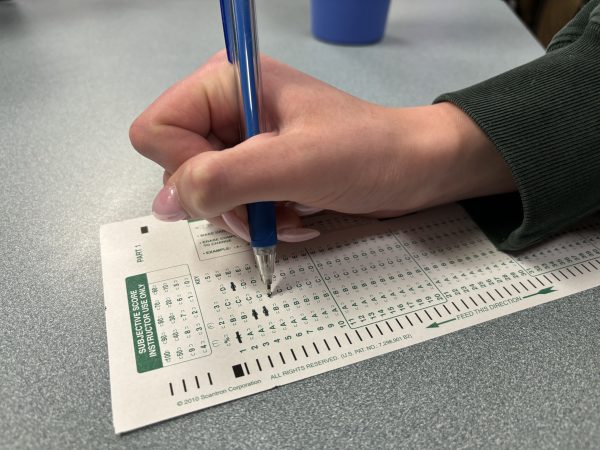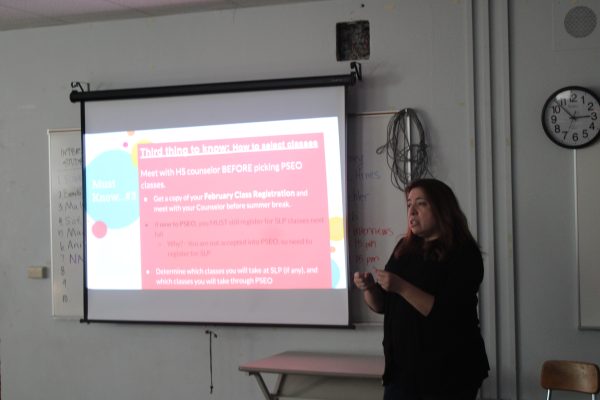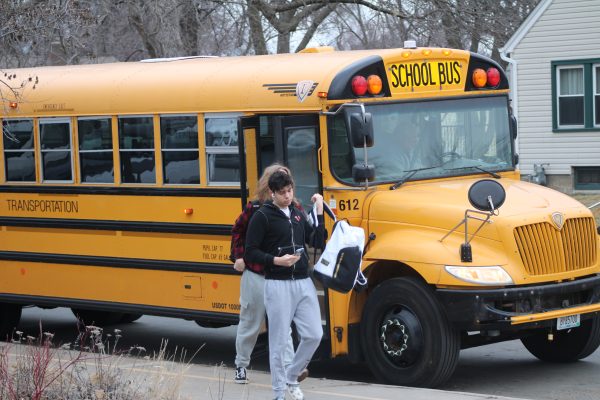Park said it: no more pass/no credit
Photo Illustration
November 22, 2022
During the pandemic, if a student received a grade they didn’t like, they could opt for a pass grade to replace the unwanted letter grade. This was useful for students who got mostly A’s or B’s, but had one worse grade that would lower their GPA.
Though the class grade would have no effect on the student’s GPA, their transcript would display the grade as a P. As the pandemic winds down, though, the option to get pass/no credit has been removed for core classes.
Assistant Principal Alyssa Gardner said one of Park’s reasons for the change is the importance of core class grades.
“We decided, first of all, that if it’s a core requirement for graduation, that has to be a letter grade,” Gardner said. “And then for electives, if students wanted to take it, we were going to limit it to two per year or roughly one per semester so that students still have it as an option.”
Gardner said students were misled to believe P’s benefited their grades, and it ended up having negative effects on their transcripts in the long run.
“One really important thing to note is that we found the NCAA, when they’re calculating GPA’s for athletes that are looking to receive scholarships, they calculate a pass as a D-,” Gardner said. “The way it’s actually calculated by percent probably has a significantly more negative impact than they were expecting, and that’s difficult.”
Junior Jonah Kaufman said the change may promote students to work harder.
“Maybe it’ll convince more students to work for their grade more, but it might also just not work,” Kaufman said.
Chemistry teacher Alexander Polk said the change will depict a more accurate measure of a student’s GPA.
“It’s a stronger indicator of who really got certain GPA’s, versus having this thing that bumped it up,” Polk said.
According to Polk, there was a “grade inflation” before the change, so this will even out students’ GPA’s.
Gardner said Park made sure the new pass/no credit rules won’t enable students to slack off on important schoolwork.
“There are reasons to use it,” Gardner said, “But we really wanted to get a better handle on it and make sure it was kind of being used for the appropriate reasons,” Gardner said.
Polk said that although this change could be difficult for some students, it is Park’s best option.
“Even though it might make it a little bit rough at the beginning with people getting used to it again. Ultimately, it is the move that is more beneficial in the long run,” Polk said.














